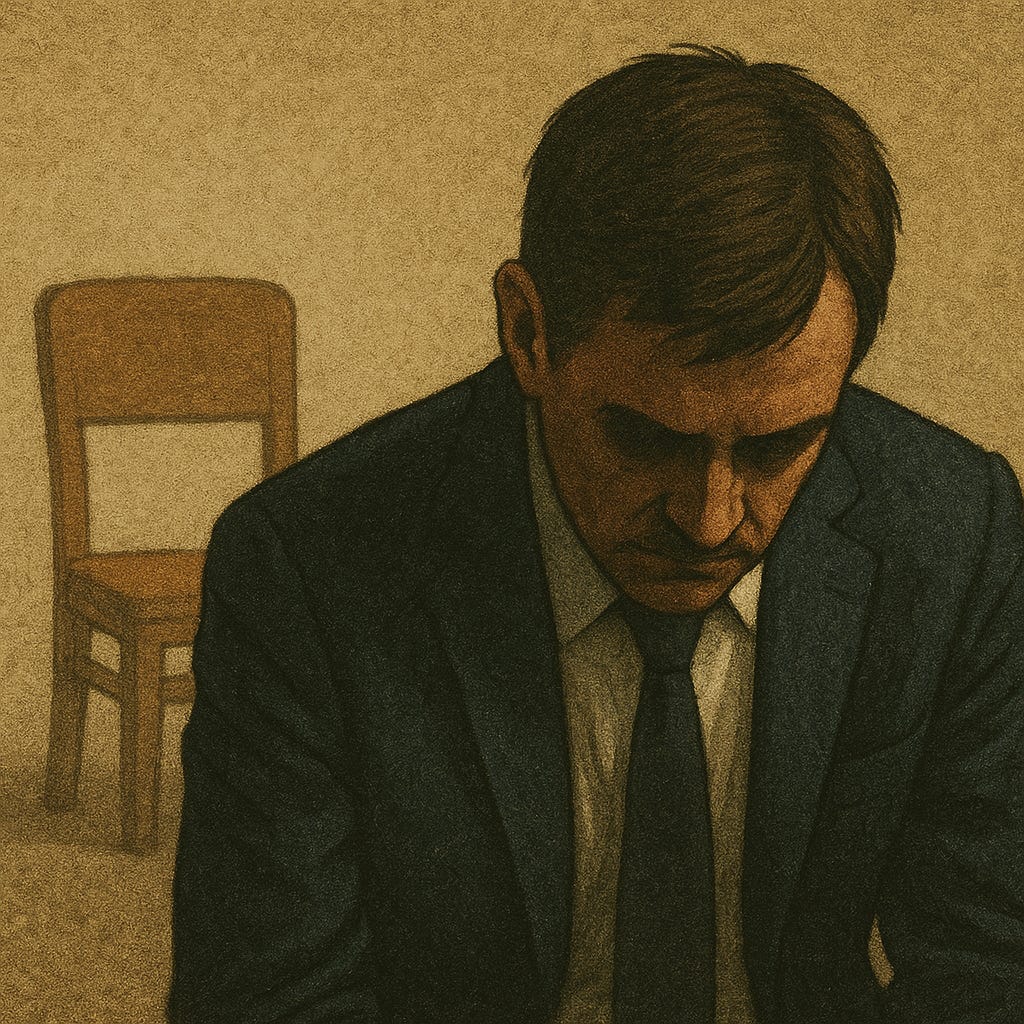The Post-Exit Void
After selling a start-up, founders often face emptiness, identity collapse, and loss of relevance. This essay explores the psychological and social challenges hidden behind financial success.
The exit is supposed to be the climax of a founder’s journey. A successful sale, IPO, or merger signals triumph: validation of vision, hard work, and risk. Friends, investors, and the press celebrate. Everyone assumes the founder will bask in newfound wealth, freedom, and influence. And yet, the reality is often profoundly different.
Founders who have sold their companies describe a sudden emptiness, an invisible void that no cheque or accolade can fill. The adrenaline that once defined their days — fundraising, product launches, hiring crises — vanishes overnight. The calendars that were packed with investor meetings, team scrums, and press interviews now lie eerily blank. The very routines that structured their identity are gone, leaving a psychological vacuum that can be both confusing and terrifying.
It is not just boredom. It is a collapse in relevance.
In the ecosystem where they were once central, the founder suddenly becomes peripheral. Colleagues move on, investors turn attention to the next venture, and even the media’s spotlight shifts to new stories. The sense of being indispensable, the gravitational role in a living, breathing company, disappears. What remains is a world in which the founder is rich, but unknown — or worse, unknown and unnecessary.
→ Beyond professional dislocation lies existential impact.
Founders often realise that their personal identity was inseparable from their company. They were defined by creation, crisis, and control. Without these, the self they inhabited no longer exists in the same form. Social status, peer recognition, and even self-esteem become unstable. Suddenly, the question “Who am I now?” is more pressing than any strategic decision they have ever faced.
Yet this void is rarely discussed. Popular narratives of exits focus on the financial windfall, the career pivot, or the next venture. Few warn that post-exit life can be disorienting, psychologically destabilising, and identity-shattering.
The silence compounds the problem: founders believe they are failing if they struggle to feel fulfilled after the “success” everyone expected would complete their story.
The post-exit void is the hidden cost of entrepreneurship — one that cannot be hedged with wealth, fame, or accolades. It is the quiet, unspoken reality of what happens when the central axis of a founder’s life suddenly disappears.
In this issue of The Founder's Brew, we explore the psychological aftermath of selling a start-up. Beyond financial gain, founders face a sudden collapse of relevance, meaning, and identity. The routines, responsibilities, and crises that once defined them vanish, leaving an unexpected void. This essay examines why post-exit life can be disorienting, how founders grapple with the loss of purpose, and why the industry rarely prepares anyone for the existential consequences of success.
More posts from this series:
🚀 Today’s Issue at a Glance
The Disappearance of Daily Purpose
Relevance and the Shrinking Orbit
Identity Collapse and the Self
The Social and Emotional Aftermath
Welcome to The Founder’s Brew, 🔒subscribers-only🔒 offering by The Percolator dedicated to entrepreneurs & start-up enthusiast. Each week we share tools, resources and insights to help you grow in your founder journey.
🚀
Now, you can Upgrade your Subscription for Free when you Invite your Friends to Subscribe to The Percolator
An exit is supposed to be the ultimate reward for founders: validation of years of relentless effort, sleepless nights, and personal sacrifice. In theory, it marks the culmination of a journey defined by ambition, creativity, and risk. Investors cheer, employees congratulate, and media coverage paints the narrative of triumph. Yet for many founders, the post-exit reality is starkly different from the mythology.
The initial euphoria of an exit — the wire transfer, the headlines, the public recognition — can mask an underlying shift that is far more profound.
The routines that once structured a founder’s life vanish almost overnight. Long-term goals tied to product development, team growth, and market conquest are suddenly irrelevant. Daily crises that demanded attention and ingenuity no longer exist. Without the constant stimulation of high-stakes decision-making, founders often experience disorientation, a psychological emptiness that can be both confusing and unsettling.
Financial wealth does not inoculate against this void. In fact, money can sometimes intensify the dislocation. Suddenly liberated from operational responsibilities, founders are confronted with time and freedom in ways they have never known. Social networks built around the company’s mission — colleagues, investors, advisors — dissipate as everyone moves on to new ventures. The founder’s centrality, once assumed and unchallenged, evaporates. The feeling of indispensability, which defined self-esteem and professional identity for years, becomes unattainable.
The post-exit void also strikes at a deeper level: identity.
Many founders’ sense of self is inseparable from the company they built. They are defined by creation, crisis management, and visible impact. When the company is sold, the axis of their identity shifts abruptly, leaving founders to grapple with questions they have never had to confront: Who am I without this work? What is my purpose now? How do I define value outside of the company I created?
These existential dilemmas are rarely acknowledged in press narratives or industry advice. Moreover, societal and peer expectations exacerbate the problem.
Founders are celebrated for achieving an exit, and yet the very success that should provide security becomes a source of isolation. Admitting to feelings of emptiness or disorientation is often seen as weakness, a betrayal of the archetype of the confident, unstoppable entrepreneur. The silence around these experiences intensifies the sense of abnormality, leaving founders to navigate a complex psychological landscape in private.
Understanding the post-exit void is critical. It reframes what success looks like and highlights the human cost often hidden behind financial and media metrics. Beyond wealth and fame, founders must confront the challenge of reconstructing identity, purpose, and relevance — a task that can be as difficult, if not more so, than building the company itself.
🚀
Keep reading with a 7-day free trial
Subscribe to The Percolator to keep reading this post and get 7 days of free access to the full post archives.





